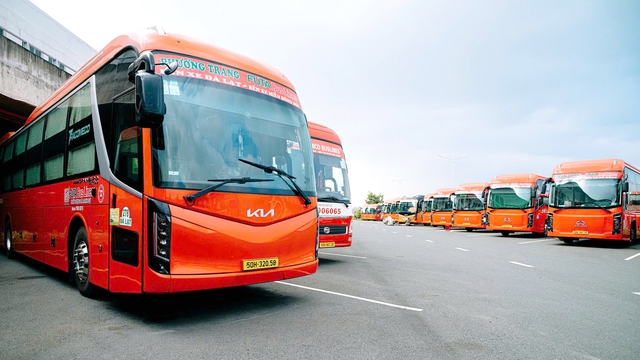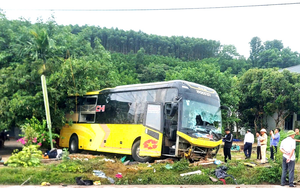
Sleeper buses are parked at the new Mien Dong (Eastern) Bus Station in Ho Chi Minh City, Vietnam. Photo: Thanh Hiep
The recent proposal to ban sleeper buses has sparked widespread debate in Vietnam, not only because it concerns public safety, but because it affects a large portion of people who rely on these vehicles for long-distance travel.
But I believe the ban is not a feasible solution, at least not yet.
Sleeper buses have not completed their mission simply because we have not developed a better alternative for affordable long-distance transportation.
The problem is not the bus. It is the way it is managed
If we want to reduce accidents involving sleeper buses, we need to approach the issue differently: deal with the people who break the rules, not the vehicles themselves.
I remember a sleeper bus trip my friend took from Pleiku in Gia Lai Province to Ho Chi Minh City.
The scheduled arrival was 5:00 am, and she had planned to sleep during the ride.
But she did not dare shut her eyes. The bus was going terrifyingly fast.
It pulled into the Mien Dong (Eastern) Bus Station in Ho Chi Minh City at 3:30 am, much earlier than expected.
After that chaotic ride, she swore never to take a sleeper bus again.
But she is one of the lucky few who can afford alternatives: flying, taking the train, or driving her own car.
Most people still depend on sleeper buses because they are affordable and time-efficient, especially for overnight travel.
Operators benefit from night trips too, saving fuel and time.
And with newly built expressways, journey times are getting shorter, encouraging even higher speeds.
But these benefits come with hidden risks.
Every sleeper bus is equipped with a GPS tracking device.
If transport companies enforced proper oversight using these tools, they could curb dangerous driving behavior.
But in reality, many drivers speed because they are under pressure to stay on schedule.
Arriving early is usually not a problem. But arriving late can lead to reprimands.
Long-distance overnight driving should involve rotating drivers, as required by safety regulations.
Are companies really complying with that? Are authorities monitoring it properly?
Each transport company has a department responsible for tracking trips.
They do not need traffic police on the road. Onboard cameras and GPS systems can handle that.
Ensuring safe operation is part of the company’s responsibility to its passengers.
If we truly want to make sleeper buses safer, we must improve oversight and accountability.
So far, the penalties have not been strong enough to deter reckless driving.
Instead of a ban, enforce stricter oversight
Can we realistically ban sleeper buses when alternatives like trains or planes cannot yet fill the gap, and high-speed rail is still a distant goal?
Rather than banning them, we should focus on tighter regulation and better enforcement.
First, authorities should strengthen remote enforcement tools, like speed camera data, and issue faster, stricter penalties.
Do not just fine the driver. Hold the transport companies accountable if they accumulate too many violations.
We cannot let a situation continue where a driver racks up multiple offenses before a single penalty is issued.
Companies already have access to dashcam footage and journey data. Are they using it effectively?
If they did, drivers would think twice before taking risks.
Many of my friends who drive at night say they are terrified of sleeper buses.
Some even joke, though they mean it, that you could record dozens of traffic violations just by reviewing a single night’s worth of dashcam footage from cars sharing the road with these buses.
In fact, several serious cases have already been investigated using evidence from other vehicles’ cameras.
There should be an official channel for the public to report sleeper bus violations using video or photos.
Every citizen could contribute to this—not for reward, but for the safety of passengers and better traffic order across the country.
The real problem is not the bus. It is how people operate and manage them.
We need a stronger approach to regulating transport services.
Rather than banning sleeper buses, we should expand the rights and responsibilities of both companies and the public to monitor violations.
Transport companies that prioritize passenger safety and public trust will not only survive, they will thrive.




Max: 1500 characters
There are no comments yet. Be the first to comment.